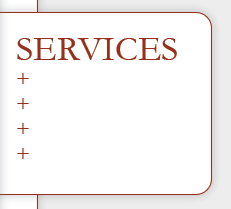




Phone: 503.334.4239 Email: kstclair@karenstclairpdx.com
Copyright © 2013 Karen St.Clair. All rights reserved.
I am an enrolled member of the Bdewakantuwan Dakota, and was raised in a home of two cultures: Sioux culture and dominant culture. I’ve learned to walk and talk in both worlds. Growing up Indian meant that I quietly understood the world differently from many of my friends and family, an experience that continues to this day. I treasure my Indian world view, knowing that the dominant culture has its own biases and prejudices which are often hidden to most people, but are obvious to Indians on a daily basis.
As an experienced therapist to Indians, I’ve learned how dominant culture theories are useful to my Indian clients, and how they fall short of the mark. I’ve learned to pick the good fruit so as to be most helpful to my clients. When I reflect on my experience providing therapy to Indian clients, I describe the process as a long conversation, with many breaks, about the client and his or her life.
In therapy, sometimes referred to as counseling, you and I will want to focus on balance and harmony. We strive for this as Indians, knowing that harmony leads us to true health in all of its directions: physical, mental, emotional, and spiritual. We do this not only for ourselves, but also for our family and friends, and for our community as a whole. While we consider ourselves a “work-in-progress” always, we have been taught by our elders and family that getting healthy is a spiritual obligation.
Many of us do our best work in the therapy room when we are less stressed. Yet, it is more common that we begin a counseling process during times of discomfort and malaise. Specific areas that I’ve more commonly worked with include the following:
adjustment to specific life changes,
grief and mourning,
long-standing anxiety or depression,
life stage changes,
maintaining healthy recovery habits,
relationship distress and management,
trauma survival.
The Portland Indian community is a small community; we often know each other well. We may wish to speak our truth by confiding in someone who is Indian, but don’t want our information to be shared with others. Our connections to each other can be close, and so often we decide to keep our stories to ourselves. When this clashes with a desire, or need, to speak directly with someone, a professional may be called, but often that professional is not Indian. I am both Indian and a trained licensed clinical social worker, and would consider your call a privilege.
The ‘People’ Speak





